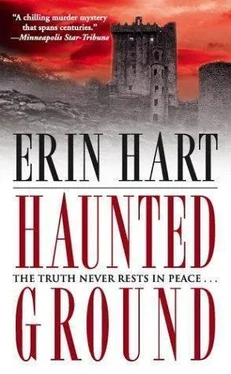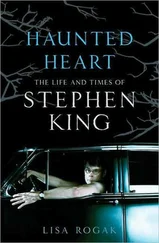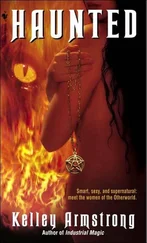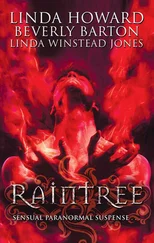“So I see. Anything turn up?”
“Just a few bits of crockery. I’m not very far along with this area.”
There was a pause before they both began speaking at once.
“Sorry,” Nora said. “You first.”
“No, I insist,” Cormac said.
“All right. That piece of metal inside the girl’s mouth—you’ll never guess what it turned out to be.” She extended the folder, which he opened to a glossy photo of a gold ring, shown at about five times its actual size, the red stone looking slightly washed out by the flash.
“There’s an inscription,” she said. “You can see it in the next couple of pictures, I think.”
Cormac sat down on the lip of the trench to look through the photos more carefully. “It’s a pretty astonishing find, but what does it tell us? That she wasn’t likely in the bog before 1652—but it could have been any time after that. It’s possible that the ring was inscribed in 1652 but not buried with her until years later.” He sounded disappointed.
“At least it’s something,” Nora said. She felt slightly perturbed that he wasn’t more excited.
“What did Robbie make of all this? I assume you told him.”
“He isn’t too hopeful, but he agreed to press on, looking for trial or marriage records. It occurred to me on the way out here that OF could stand for O’Flaherty.”
“Surely. But it could just as easily be O’Farrell, O’Flynn, or O’Fallon as well. We’ll never find out conclusively, and we’ll just end up running in circles and going mad over all the possibilities.”
“I know we can find out who she was,” Nora said. “I don’t know why I believe it so strongly, I just do. Go ahead and laugh, but I think the ring is some sort of a message. I think it was the only way she could think of to tell us who she was.”
“Anyone could have put that ring in her mouth, even after she was dead. We’ve nothing to go on either way. You see, we’re going mad already, arguing about it. But what if we go and speak to Ned Raftery, the schoolteacher?”
She could tell he was trying to make peace. “All right,” she said. “What was it you were going to tell me?” She listened intently as Cormac told about what had happened in her absence: the light in the woods, his late-night chat with Hugh Osborne, and his visit this morning to the tower house.
She said, “I hope you notice that I’m not in the least bothered by the fact that you went there without me. You’re turning into a regular gum-shoe.”
His look was slightly sheepish. “God help us.”
“I think it’s time I got my hands dirty,” she said. “Back in a bit.”
Nora drove rapidly to Bracklyn House, first dropping off Cormac’s case in his room, then returning down the broad, carpeted hallway to her own. The house was quiet, but something in the stillness made her uneasy. There wasn’t enough life in this place; things got done silently, by unseen hands, and it could unnerve a person. In her own room, she slipped off her shoes and crossed to the bathroom. Before she stepped over the threshold, something caught her eye, and she stopped short. Shards of broken glass lay scattered across the floor. She checked the shelf above the sink. The drinking glass was gone. And yet the jagged shards seemed to add up to more than a single water glass. She looked down at her stocking feet. Stepping into the room would have been disastrous. Was this really an accident, or some sort of warning? Nora felt a sudden prick of fear as she remembered the whispering voice on the phone: Leave it alone. This place was making her paranoid. She should just carry on, and assume it was an accident unless something else happened. She’d seen where Hugh Osborne put the broom after Jeremy’s encounter with her wineglass, so she put her shoes back on and ventured downstairs toward the kitchen.
She heard the sound of scrubbing coming from the doorway under the main stairs, and saw a figure in old clothes, down on hands and knees, scouring the stone floor with a hard-bristled brush. The woman’s dark hair was caught up in a scarf, but a few stray wisps moved as she worked the brush with one gloved hand in a vigorous circular motion.
“Excuse me,” Nora said. The woman dropped the brush in her bucket with a splash and started to her feet, removing her bandanna in one sweeping motion. It was Lucy Osborne. They stood for an instant in silence. Lucy’s humiliation was evident from the rising tide of crimson on her neck, until Nora managed to stammer, “I’m sorry, I thought you were—”
“Yes. Well.” Lucy Osborne was beginning to regain her composure, smoothing the stray hairs back into place. “My cleaner, Mrs. Hernan, is down with a flu, and these stairs were in sore need of attention, with all the extra traffic through the house.”
“I apologize if I startled you,” Nora said. “I was just getting a broom—there’s a broken glass in my bathroom.”
“Oh dear. I’ll be right up to see to it.”
“There’s no need. I know where to find the broom.”
Nora left Lucy Osborne standing in the doorway at the top of the kitchen stairs, with the bandanna still clutched behind her back. But when she came back up the stairs a moment later, there was no sign of Lucy or her brush and bucket, except for the faint damp spot on the stone floor.
After returning to the church and swearing Father Kinsella to silence about this latest development, Devaney shot some pictures of the letters carved in the wood of the confessional and dusted the area for prints. There were no clear fingerprints; plenty of smudgy partials, but nothing of any real use.
When he’d finished at the church, Devaney drove to a spot just outside the gates to Bracklyn House and waited. He saw Dr. Gavin’s car pull out of the drive, presumably headed toward the priory. About twenty minutes later, he spotted Osborne’s black Volvo. He counted out ten seconds, then pulled out of the blind approach and followed.
Teatime came and went as he followed Hugh Osborne to Shannon Airport, but Devaney found he wasn’t even hungry. Now he watched through the glass of the departures lounge as Osborne boarded a British Airways flight to London. When the last passenger was gone, Devaney approached the counter where the uniformed reservation agent stood.
“What time does this flight arrive in London?” he asked.
“There’s no stopover in Dublin,” the young woman said, “so it should arrive in Gatwick at nine-fifty.”
Nine-fifty. It might not be too late to call the Badger. Jimmy Deasey, an old friend from his early days in the Guards, had been called “the Badger” as long as Devaney had known him, which must be going on twenty years, although it was doubtful whether anyone at all remembered why. Deasey had emigrated to England five years ago, taking up a cushy post as head of security for some high-tech company outside London, but they had kept in touch. Devaney located the nearest coin phone, looked up Jimmy’s entry in the tiny book he kept in his breast pocket, and dialed the number.
“Hullo,” said a deep voice, which, despite the loud, thumping music in the background, he thought he recognized as the Badger’s.
“Jimmy, it’s Garrett Devaney—”
“Hang on. I think you want my da.” The sound of a hand over the receiver muffled the boy’s voice as he called, and Devaney could just make out the Badger saying, “Ciaran, would you ever turn that down? How do you expect to hear anyone over the phone?” The music subsided, and he heard the Badger’s voice, but with an unfamiliar, businesslike tone. “Seamus Deasey here.”
“Jaysus, Jimmy, the lad must be as tall as yourself. It’s Garrett Devaney.”
Instantly, the Anglicized inflection disappeared from Deasey’s voice, replaced by his own musical Cork accent. “Ah, Devaney, begod, how are ye getting on? It’s been fuckin’ ages.”
Читать дальше











